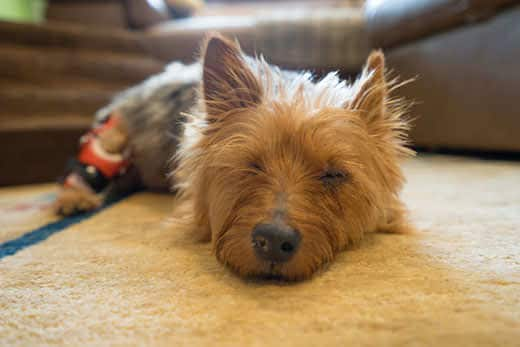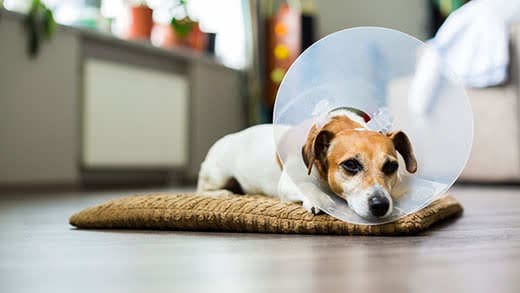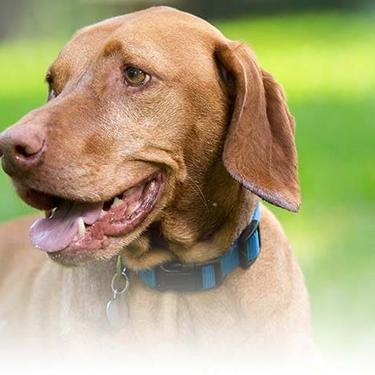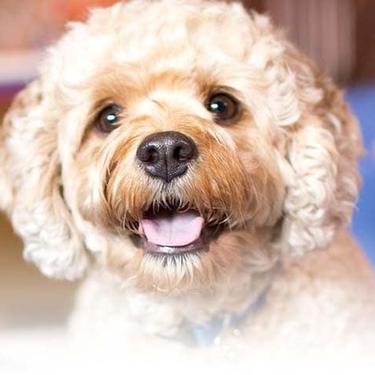
-
Find the right food for your pet
Take this quiz to see which food may be the best for your furry friend.
Find the right food for your pet
Take this quiz to see which food may be the best for your furry friend.
Featured products
 Adult 7+ Perfect Digestion Chicken, Whole Oats & Brown Rice Recipe Dog Food
Adult 7+ Perfect Digestion Chicken, Whole Oats & Brown Rice Recipe Dog FoodScience Diet's breakthrough nutrition supports ultimate digestive well-being & healthy microbiome for dogs age 7+
Shop Now Adult Healthy Cuisine Roasted Chicken, Carrots & Spinach Stew Dog Food
Adult Healthy Cuisine Roasted Chicken, Carrots & Spinach Stew Dog FoodDelicious roasted chicken paired with tender vegetables in a succulent stew
Shop Now Small & Mini Savory Stew with Chicken & Vegetables Dog Food
Small & Mini Savory Stew with Chicken & Vegetables Dog FoodA delicious complement to the nutrition of Science Diet Small & Mini 7+ dog food
Shop NowFeatured products
 Adult 7+ Tender Tuna Dinner Cat Food
Adult 7+ Tender Tuna Dinner Cat FoodWith delicious chunks in a decadent gravy
Shop Now Adult 7+ Senior Vitality Chicken & Vegetable Stew Cat Food
Adult 7+ Senior Vitality Chicken & Vegetable Stew Cat FoodImproves Everyday Ability to Get Up & Go
Shop Now Adult Savory Entrée Can Variety Pack Cat Food
Adult Savory Entrée Can Variety Pack Cat FoodPrecisely balanced nutrition with the delicious taste of savory minced chicken to help fuel the energy needs of cats during the prime of their life
Shop Now -
Dog
- Dog Tips & Articles
-
Health Category
- Weight
- Food & Environmental Sensitivities
- Urinary
- Digestive
- Joint
- Kidney
-
Life Stage
- Puppy Nutrition
- Adult Nutrition
- Senior Nutrition
Cat
- Cat Tips & Articles
-
Health Category
- Weight
- Skin & Food Sensitivities
- Urinary
- Digestive
- Kidney
-
Life Stage
- Kitten Nutrition
- Adult Nutrition
Featured articles
 Why Are Dogs and Cats So Cute?
Why Are Dogs and Cats So Cute?If waggy puppy dog tails and furry kitten yawns make you swoon, you're not alone. Why are cats so cute? And, dogs too! Let's find out!
Read More Do Dogs and Cats have Belly Buttons?
Do Dogs and Cats have Belly Buttons?Learn whether cats & dogs have belly buttons like humans, what the function is, and if there are any health concerns associated with it.
Read More Does My Pet Hate Me?
Does My Pet Hate Me?Learn tips for bonding with your pet if you've ever thought, 'My dog doesn't like me, or 'Why do I have a standoffish cat?'
Read More -


One of the most common knee injuries in dogs is a torn anterior cruciate ligament (ACL). Not only is this injury very painful, but it's also a well-known cause of knee arthritis in dogs, which is why many pet parents choose to have it surgically repaired. Proper torn ACL home treatment is as important to a good recovery as the surgery itself. If you find yourself in this situation, here is what you can expect from dog ACL surgery recovery.
What Is ACL Surgery?
Dogs have cruciate ligaments inside their knees that help with stabilization. If your dog starts limping on one hind leg, it's possible that they've torn the cranial cruciate ligament (CCL), which is very similar to the anterior cruciate ligament (ACL) in human beings. An unstable knee creates inflammation, which leads to pain, reduced mobility and early onset arthritis.

Surgery for torn ACLs in dogs is aimed toward stabilizing the knee to reduce pain and slow down the development of arthritis in the knee. There are a couple of different surgical procedures used to repair ACLs in dogs, some of which can only be performed by a board certified veterinary surgeon. Your veterinarian will advise you on what is best for your dog.
Dog ACL Surgery Recovery Tips
Helping your dog through the recovery period is as important to successful healing as the actual surgery. In general, dog ACL surgery recovery takes about six months. During that time, it's vital to keep the following action items in mind.
1. Restrict Exercise
Restricting your pup's movements is critical to dog ACL surgery recovery. You will likely get a couple of pages of discharge instructions from your surgeon that give you specifics, some of which may include:
- Resting as much as possible following surgery for a minimum of four weeks.
- Leashed walking for ten to fifteen minutes and for bathroom breaks only.
- No running, jumping or climbing stairs. Some dogs may need support to get up. You can use a towel as a sling under your dog's belly to help them up.
- Lengthening walks by adding five minutes after four weeks. Just remember to keep your dog away from stairs or hills.
- Extending walks to 30 minutes after six weeks, and incorporating gentle inclines — still no running, jumping or unleashed walks.
Adjustments in exercise restriction will be determined by periodic checkup appointments after surgery to assess how your dog's knee is healing. If your pup is healing quickly they may be able to increase their activity level sooner. If, on the other hand, your pup is taking a little extra time to heal up your vet may advise taking things slower to try reduce the risk of post-operative complications. Regardless, your vet will advise you on how to safely add more exercise to your dog's routine. If you have a hard time keeping your dog quiet during recovery, ask your vet for sedative or calming medications.
2. Monitor Implants
All ACL surgeries require some sort of implant in the knee, and it's important to monitor your dog's surgical site for any signs of implant complications. Signs that there is a complication include:
- Excessive swelling
- Redness
- Pain
- Heat
- Discharge or odor from the surgical site
Dogs are usually sent home with a bandage after surgery to provide compression and support to the knee. It's also important that they wear an E-collar at all times to prevent them from licking the surgical site.
3. Keep All Follow-Up Appointments
Your vet will want to see your dog for follow-up appointments, usually two weeks after surgery, four weeks after surgery and eight weeks after surgery. During these appointments your vet will examine the surgical site, ask you questions about how your dog is doing, remove stitches or staples and take follow-up X-rays to make sure the knee is healing well. Make sure to keep all your dog's follow-up appointments to ensure successful healing and return to function.


Tasty Tips

4. Administer Medications for Pain Control
Knee surgery is painful! Your vet will prescribe pain medications that can include non-steroidal anti-inflammatories. Your dog may also receive pain medication through a skin patch. You can provide your dog extra comfort by using cold compresses on the knee immediately following surgery to reduce swelling, and by making sure your dog has a thick orthopedic bed to rest and recover on.
5. Consider Rehabilitation Options
Getting your dog started on rehabilitation exercises is another critical part of recovery. Your dog will need to rebuild strength and mobility, and working with a vet trained in rehabilitation can help guide you through this process. Otherwise, your vet will give you exercises to do with your dog at home. Follow all instructions to the letter for best results.
6. Manage Their Nutritional Needs
Excess weight is a known risk for causing ACL tears in dogs. Additionally, it is not uncommon for dogs that experience an ACL tear in one knee to eventually end up with a similar injury in their other knee. While your dog is recovering, they will be burning less calories and may gain weight if you aren't correctly controlling their calorie intake. Weight gain puts added stress and strain on your dog's joints and puts them at risk for other diseases as well. Talk with your vet about how much to feed your dog during recovery. In addition, even after a repair, dogs with torn ACLs are at higher risk for arthritis in the affected joint. Offering a food that can manage both weight and provide joint support is an excellent way to support your dog nutritionally while also helping protect their remaining healthy knee.
Following all your vet's instructions for a dog torn ACL home treatment is critical to a successful recovery. Protect your investment in the surgery and give your dog the best chance at a full recovery by knowing what to expect when your dog has ACL surgery.


Dr. Sarah Wooten graduated from UC Davis School of Veterinary Medicine in 2002. A member of the American Society of Veterinary Journalists, Dr. Wooten divides her professional time between small animal practice in Greeley, Colorado, public speaking on associate issues, leadership, and client communication, and writing. She enjoys camping with her family, skiing, SCUBA, and participating in triathlons.
Related products

Delicious braised beef paired with tender vegetables in a succulent stew

A delicious complement to the nutrition of Science Diet Small & Mini 7+ dog food

Delicious roasted chicken paired with tender vegetables in a succulent stew

Science Diet's breakthrough nutrition supports ultimate digestive well-being & healthy microbiome for dogs age 7+
Related articles

Your dog's coat and skin are a big part of your dog's overall health. Ensure you keep your dog's coat healthy, by following these simple tips.

Large and giant breed puppies have different nutritional needs than other dogs. Learn how to provide the special care they need to grow up big and strong.

Hill's Science Diet Small & Toy Breed dog foods are designed to meet the nutritional needs for your small dog at every life stage. Learn more here.

Learn about choosing the right food for your mature or older dog, ensuring he receives the correct balance of nutrition.

Put your dog on a diet without them knowing
Our low calorie formula helps you control your dog's weight. It's packed with high-quality protein for building lean muscles, and made with purposeful ingredients for a flavorful, nutritious meal. Clinically proven antioxidants, Vitamin C+E, help promote a healthy immune system.
Put your dog on a diet without them knowing
Our low calorie formula helps you control your dog's weight. It's packed with high-quality protein for building lean muscles, and made with purposeful ingredients for a flavorful, nutritious meal. Clinically proven antioxidants, Vitamin C+E, help promote a healthy immune system.

